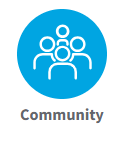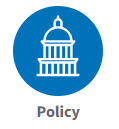Enhancing Collaborative Decision-Making Among Veterans of Color in VA Mental Health Care
Summary
The research project led by Dr. Emily Treichler and her team at the VA San Diego and UC San Diego Department of Psychiatry aimed to enhance collaborative decision-making among Veterans of color with Serious Mental Illness (SMI) in VA mental health care. The study used community-engaged mixed methods to identify the preferences, values, and current experiences related to treatment decision-making among these veterans. It also sought feedback to culturally tailor an empowerment-oriented group intervention called Collaborative Decision Skills Training, intended to boost collaborative decision-making in this group.
The Challenge
Veterans of color with serious mental illness (SMI) have lower involvement in decision-making processes about their treatment despite their high need for mental health services. Only 20% or less of veterans with SMI are currently involved in their treatment decisions, with even lower involvement among people of color. This project addressed the disparity in recovery-oriented services, which are crucial for supporting veterans in pursuing fulfilling lives irrespective of symptom severity.
The Approach
The team engaged directly with veterans of color, involving them in co-designing major study elements, such as survey selection and interview design. The research involved conducting surveys and qualitative interviews with participants. The first interview gathered insights on their experiences and preferences in treatment decision-making, while the second focused on their feedback on the Collaborative Decision Skills Training after reviewing the materials for over a week. This hands-on approach facilitated a deeper understanding of the unique needs and preferences of this group.
The Impact
The clinical and medical benefits of this initiative focus on enhancing collaborative decision-making among Veterans of color with Serious Mental Illness (SMI) by tailoring the Collaborative Decision Skills Training based on their feedback and creating clinical guidelines from Veteran-led recommendations. This aims to recovery-oriented mental health services within the Veterans Affairs (VA) system, and although primarily targeting mental health services, it could influence other VA services like primary care. Additionally, the community and public health benefits revolve around involving Veterans in research and public health strategies to ensure effective co-creation. Insights gained from Veteran participants help improve engagement beyond individual decision-making, fostering stronger relationships between Veterans and VA or academic entities, ultimately enhancing public health outcomes.
Key Benefits
 |
|
Theraputic Procedures - Demonstrated
The study led to the tailoring of the Collaborative Decision Skills Training manual, making it more relevant and effective for veterans of color.
|
 |
|
Guidelines - Demonstrated
The research helped generate veteran-led clinical recommendations, which are poised to improve the quality of care within the VA system.
|
 |
|
Investigative Procedures - Demonstrated
This research led to the identification of effective co-creation methodologies with Veteran partner teams.
|
 |
|
Healthcare Accessibility - Potential
By identifying multilevel determinants of high-quality care, the project is set to improve the accessibility of mental health services for veterans of color.
|
 |
|
Healthcare Delivery - Potential
The project supports increased collaborative decision-making during care delivery by identifying key determinants and engaging the veterans in the decision-making process.
|
 |
|
Public Health Practices - Potential
The identification of current levels of collaborative decision-making and its relationship with key social determinants of health among veterans of color could enhance public health practices and policies.
|
 |
|
Policies – Potential
The identification of an effective co-creation methodologies and multi-level determinants of high-quality care has the potential to inform future policies related to improved treatment of serious mental illness.
|
Additional Resources
- Park, S.G., Derman, M., Dixon, L.B., Brown, C.H., Klingaman, E.A., Fang, L.J., Medoff, D.R., and Kreyenbuhl, J. (2014). Factors Associated With Shared Decision–Making Preferences Among Veterans With Serious Mental Illness. PS 65, 1409–1413. 10.1176/appi.ps.201400131.
-
Treichler, E. B. H., McBride, L. E., Gomez, E., Jain, J., Seaton, S., Yu, K. E., Oakes, D., Perivoliotis, D., Girard, V., Reznik, S., Salyers, M. P., Thomas, M. L., Spaulding, W. D., Granholm, E. L., Rabin, B. A., & Light, G. A. (2024). Enhancing patient-clinician collaboration during treatment decision-making: study protocol for a community-engaged, mixed method hybrid type 1 trial of collaborative decision skills training (CDST) for veterans with psychosis. Trials, 25(1), 363. https://doi.org/10.1186/s13063-024-08127-4
-
Treichler, E. B. H., Mercado, R., Oakes, D., Perivoliotis, D., Gallegos-Rodriguez, Y., Sosa, E., Cisneros, E., Spaulding, W. D., Granholm, E., Light, G. A., & Rabin, B. (2022). Using a stakeholder-engaged, iterative, and systematic approach to adapting collaborative decision skills training for implementation in VA psychosocial rehabilitation and recovery centers. BMC health services research, 22(1), 1543. https://doi.org/10.1186/s12913-022-08833-2
